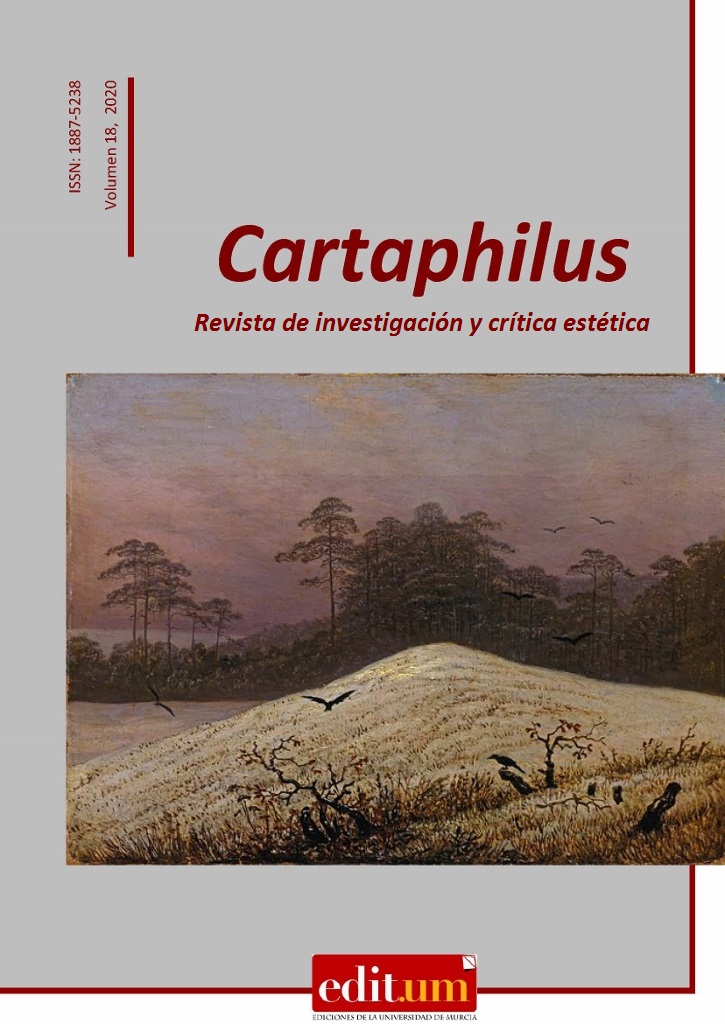The transcendentalist turn of the new post-postmodern American literature
Abstract
This article responds to the debate in the field of literary theory around the nature of post-postmodern American novels. While some authors claimed at the turn of the millennium that the novel was dead, a new generation of American writers were responsible for a new engagement with the genre on the part of the public. With this in mind, this study seeks to shed light on the nature of the literature written by young novelists seeking to distance themselves from the dead end of postmodernism. Our premise is that during the crisis that brings about a rethinking of the concept of postmodernity, the young American authors turned their gaze towards ideas from American transcendentalism as a tool to recover the unfinished Project of modernity.
Downloads
-
Abstract563
-
pdf577
References
AUSTER, P. (2007). Travels in the Scriptorium. London: Faber & Faber.
BAUMAN, Z. (2000). Liquid Modernity. Cambridge: Polity Press.
BERLIN, I. (2013). The Roots of Romanticism. New Jersey: Princeton University Press.
BIRKERTS, S. (2006). The Gutenberg Elegies: The Fate of Reading in an Electronic Age. New York: Faber & Faber.
BLOOM, H. (2004). Where Shall Wisdom Be Found? New York: Riverhead.
BOXALL, P. (2013). Twenty-First-Century Fiction: A Critical Introduction. Cambridge: Cambridge University Press.
CONRAD, P. (2014). How The World Was Won: The Americanization of Everywhere. London & New York: Thames & Hudson.
EAGLETON, T. (2004). After Theory. London: Penguin.
FRANZEN, J. (2003). How to Be Alone: Essays. New York: Picador.
GREEN, J. (2005). Late Postmodernism: American Fiction at the Millennium. New York: Palgrave Macmillan.
JOYCE, J. (1977). Ulysses. London: Penguin.
LAFFOLEY, P. (2001). Homage to Gaudi. Official Paul Laffoley Website. Retrieved March 18, 2020, from https://paullaffoley.net/writings-2/homage-to-gaudi/.
LIPOVETSKY, G. (2005). Hypermodern Times. (A. Brown, Trans.). Cambridge: Polity.
LYOTARD, J. F. (1984). The Postmodern Condition: A Report on Knowledge. (G. Bennington & B. Massumi, Trans.). Manchester: Manchester University Press.
NEGROPONTE, N. (1995). Being Digital. Vintage.
TIMMER, N. (2010). Do You Feel It Too?: The Post-Postmodern Syndrome in American Fiction at the Turn of the Millennium. Amsterdam & New York: Rodopi.
TURNER, T. (1996). City as Landscape: A Post-Postmodern View of Design and Planning. London: Taylor & Francis.
VARVOGLI, A. (2012). Travel and Dislocation in Contemporary American Fiction. New York: Routledge.
VERMEULEN, T. & van den Akker, R. (2010). Notes on Metamodernism. Journal of Aesthetics & Culture, 2(0). doi: 10.3402/jac.v2i0.5677.
VILA-MATAS, E. (2010) Dublinesca. Barcelona: Seix Barral.
WHEALE, N. (1995). The Postmodern Arts: An Introductory Reader. London: Routledge.
WHEELER, W. (2002). Graham Swift. In H. Bertens & J. Natoli (Eds.), Postmodernism: The Key Figures (297-301). Malden: Wiley Blackwell.
WOLFE, T. (1989). Stalking the Billion-Footed Beast. Harper’s Magazine 279, 45-56.
Copyright (c) 2021 Cartaphilus. Journal of Aesthetic Research and Criticism

This work is licensed under a Creative Commons Attribution-NonCommercial-NoDerivatives 4.0 International License.
Works published in this journal are subject to the following terms:
1. The Servicio de Publicaciones of the University of Murcia (the publisher) reserves the copyright of the published works and encourages and allows their reuse under the usage licence indicated in point
© Servicio de Publicaciones, Universidad de Murcia, 2015
2. Works are published in the electronic edition of the journal under a Creative Commons Reconocimiento-NoComercial-SinObraDerivada 4.0 International licence (legal text). They may be copied, used, disseminated, transmitted and publicly displayed, on condition that: i) the author and original source of the publication are cited (journal, publisher and URL of the work); ii) the material is not used for commercial purposes; iii) the existence and specifications of this licence for use are mentioned.

3. Self-archiving conditions We allow and encourage authors to electronically disseminate the preprint versions (the pre-review version) and/or post print (the version that has been reviewed and accepted for publication) of their works before they are published as this encourages earlier circulation and dissemination and so a potential increase in their citation and impact in the academic community.




